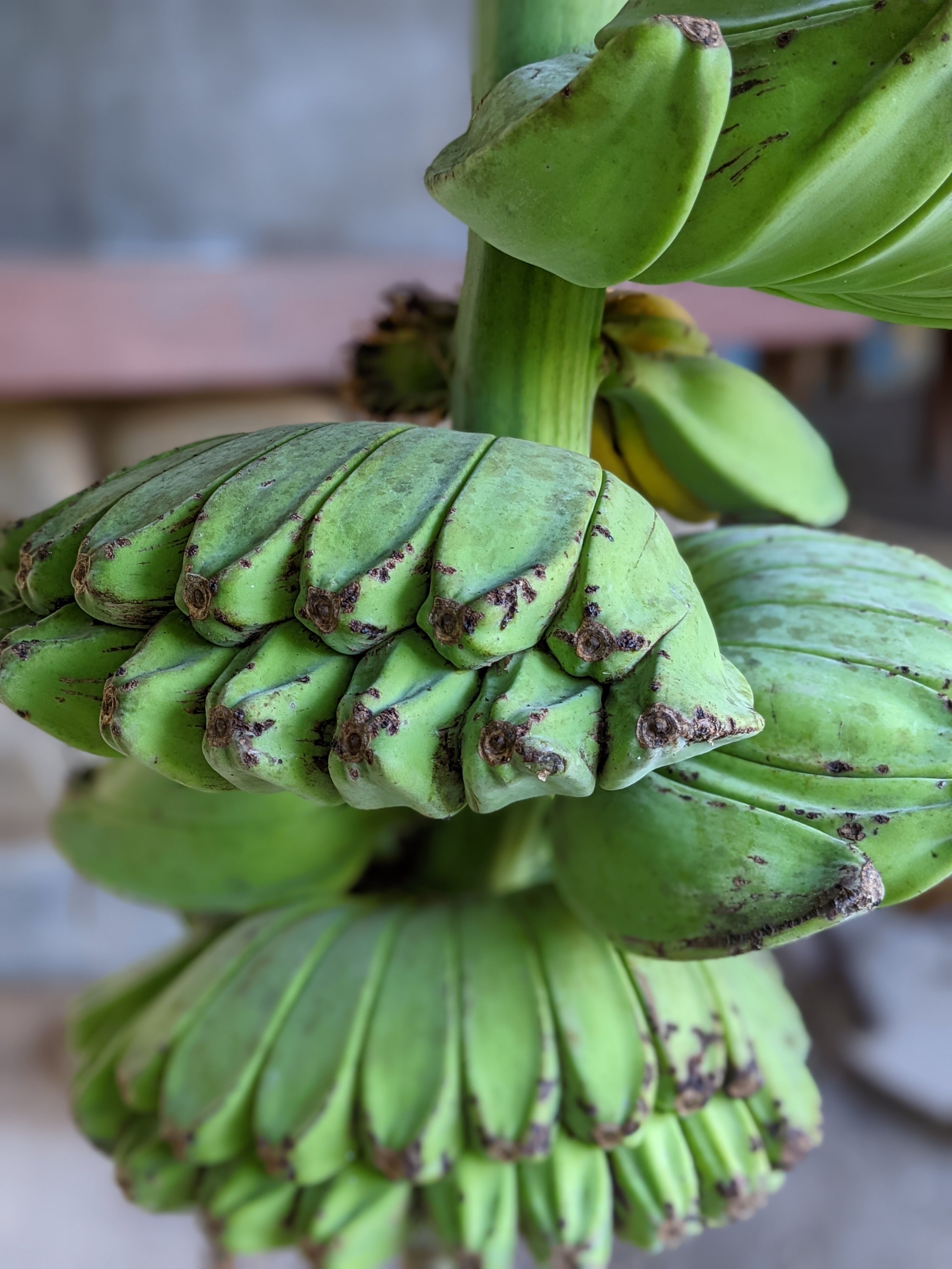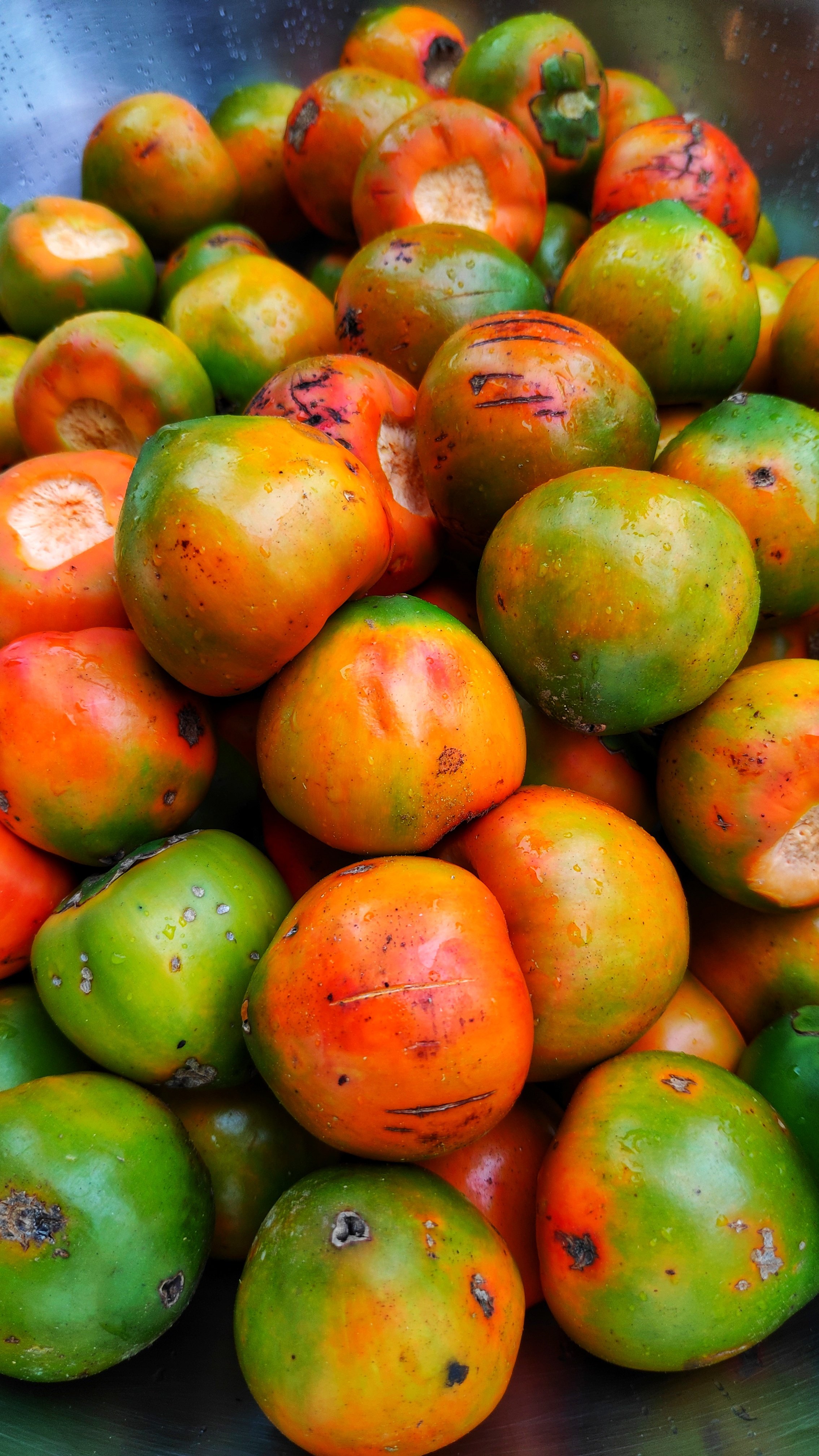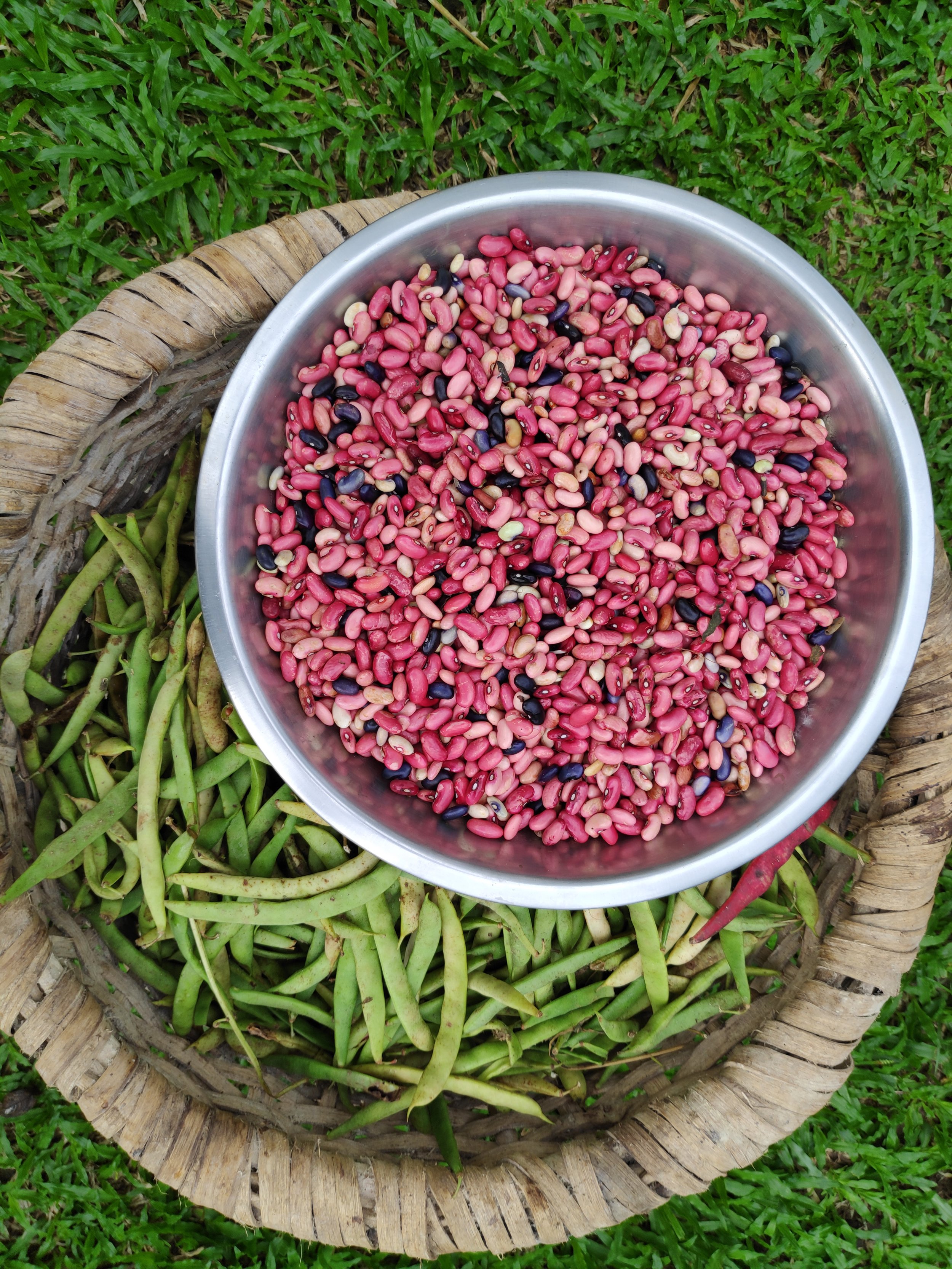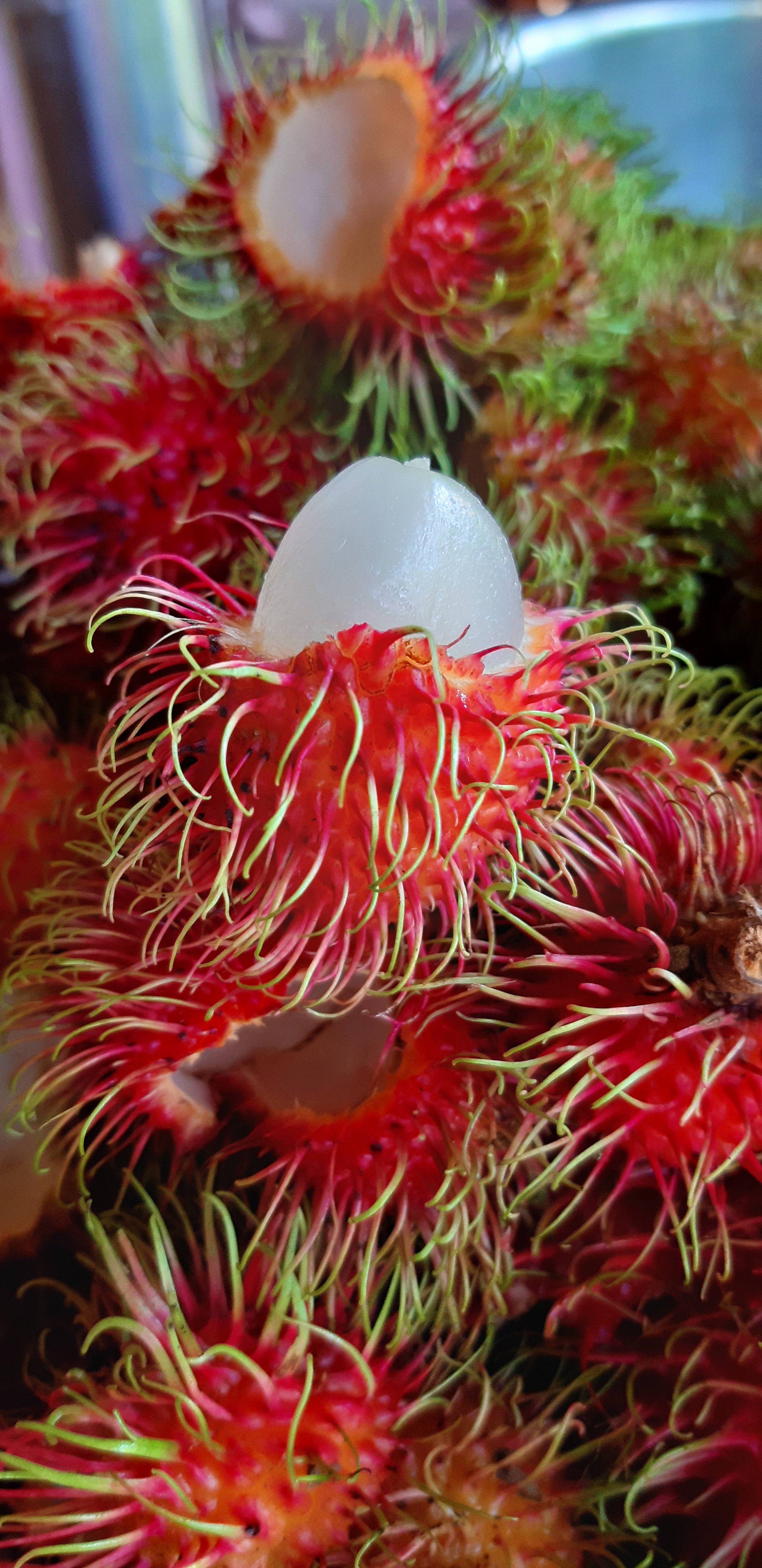Phytochemicals: The Key to a Longer and Healthier Life
By AJ Nolan, apprentice 2022
“The health of soil, plant, animal, and man is one indivisible whole.”
-Eve Balfour
There is not a doubt in my mind that living at Rancho Mastatal for the one year apprenticeship has contributed to extending and improving my life. I have been lucky enough to enjoy countless thought-provoking discussions, meaningful manual labor, and untethered access to healthy, local food.
In this article, I will focus on one aspect of our healthy lifestyle – food. Our foodshed is quite small and we always have access to seasonal fruits and vegetables. Using a refractometer, we have compared the nutrient density in the produce from our small foodshed to conventional supermarket produce. The Brix readings we get from our local, organically farmed produce are significantly higher than average Brix readings obtained from the supermarket produce. The Brix value indicates the number of soluble solids present in a sample of food. A higher Brix value indicates an increase in plant sugars, which can translate into a higher number of bio-available nutrients. Why does our hyper-local produce have more nutrients than supermarket produce? Phytochemicals.
Phytochemicals are compounds that plants make to help them defend themselves, facilitate growth, and communicate. Every plant on this great green earth makes phytochemicals. Stressors like temperature, drought, harvesting, and toxins cue plants to make phytochemicals. Plants then use these phytochemicals to communicate with their kin, warning them of nearby pests and pathogens. Plants are stuck in the ground and without these phytochemicals, they would be defenseless. They work as preventative medicine when they are a part of our diet. Phytochemicals neutralize toxins, aid in cellular cleanup, and retard the growth of cancerous cells. There are currently no daily dietary requirements for phytochemicals like there are for minerals and nutrients. This is a catastrophic oversight as phytochemicals are essential for optimal health. Phytochemicals lend flavor, color, and taste to every fruit, vegetable, grain, meat, and dairy product you’ve ever eaten.
There are over 50,000 known phytochemicals. The most widely studied group of phytochemicals is called polyphenols. Polyphenols lower the risk of coronary heart disease, improve vascular health, and reduce inflammation through antioxidant and anti-inflammatory effects. When combined with a healthy gut microbiome, phytochemicals can perform essential cellular maintenance. Resveratrol is a polyphenol found in blueberries and red wine that promotes the death of tumor cells through its strong antioxidant and anti-inflammatory properties. Lycopene, found in tomatoes, influences intercellular communication and immune system modulation. Flavonoids are a subgroup of polyphenols that specifically inhibits the activity of enzymes associated with inflammation. Quercetin is a flavonoid pigment that is found in citrus, onions, grapes, and tea that inhibits the activity of enzymes linked to inflammation. It also aids in reversing diabetes as it blocks the uptake of glucose and triggers the destruction of existing fat cells.
Many phytochemicals act as antioxidants, thus reducing the amount of “reactive oxygen species” (ROS) or free radicals. All the cells in our body are constantly using oxygen to burn energy to fuel their activities. This oxidation process creates free radicals. Free radicals can cause tissue damage if they remain in our bodies for too long. This buildup can lead to chronic ailments such as autoimmune disorders and cancer. Antioxidants help in disposing free radicals, halting the acceleration of chronic diseases. What we need in our diets is a steady supply of these phytochemicals that act as antioxidants. Diets that are plentiful in whole grains, legumes, nuts, seeds, and colorful fruits and vegetables contain antioxidant phytochemicals necessary to maintain our long-term health.
Certain farming practices can influence the number of phytochemicals in plants. Conventional agriculture utilizes excessive amounts of pesticides and chemical fertilizers, inhibiting a plant’s ability to make phytochemicals. A study conducted by the British Journal of Nutrition found that organically grown foods contained 20 to 60 percent more phytochemicals than conventional farmed foods. Degraded soil undermines phytochemical production, leaving crops more vulnerable to pests and diseases. This leads to a greater use of pesticides that end up in our food and negatively impact our health. To increase phytochemical production in plants we need to rethink the way we farm. Regenerative agriculture practices that build soil health are key. These practices include minimal tillage, implementation of cover crops, composting, the utilization of soil amendments, and effective crop rotation without the use of chemical fertilizers and pesticides.
The way we treat the soil directly affects the plants health, which in turn affects our health. How we choose to farm shapes what we become. We are what our food eats.
Sources
“What Your Food Ate” by David Montgomery and Anne Biklé
“Nourishing Traditions” by Sally Fallon
“The Regenerative Grower’s Guide to Garden Amendments” by Nigel Palmer
“On Food and Cooking” by Harold McGee
Read Past Blog Articles
Improving Soils in the Humid Tropics of Costa Rica
Amending Calcium-Deficient Soils – A Tropical Permaculturist’s Approach










